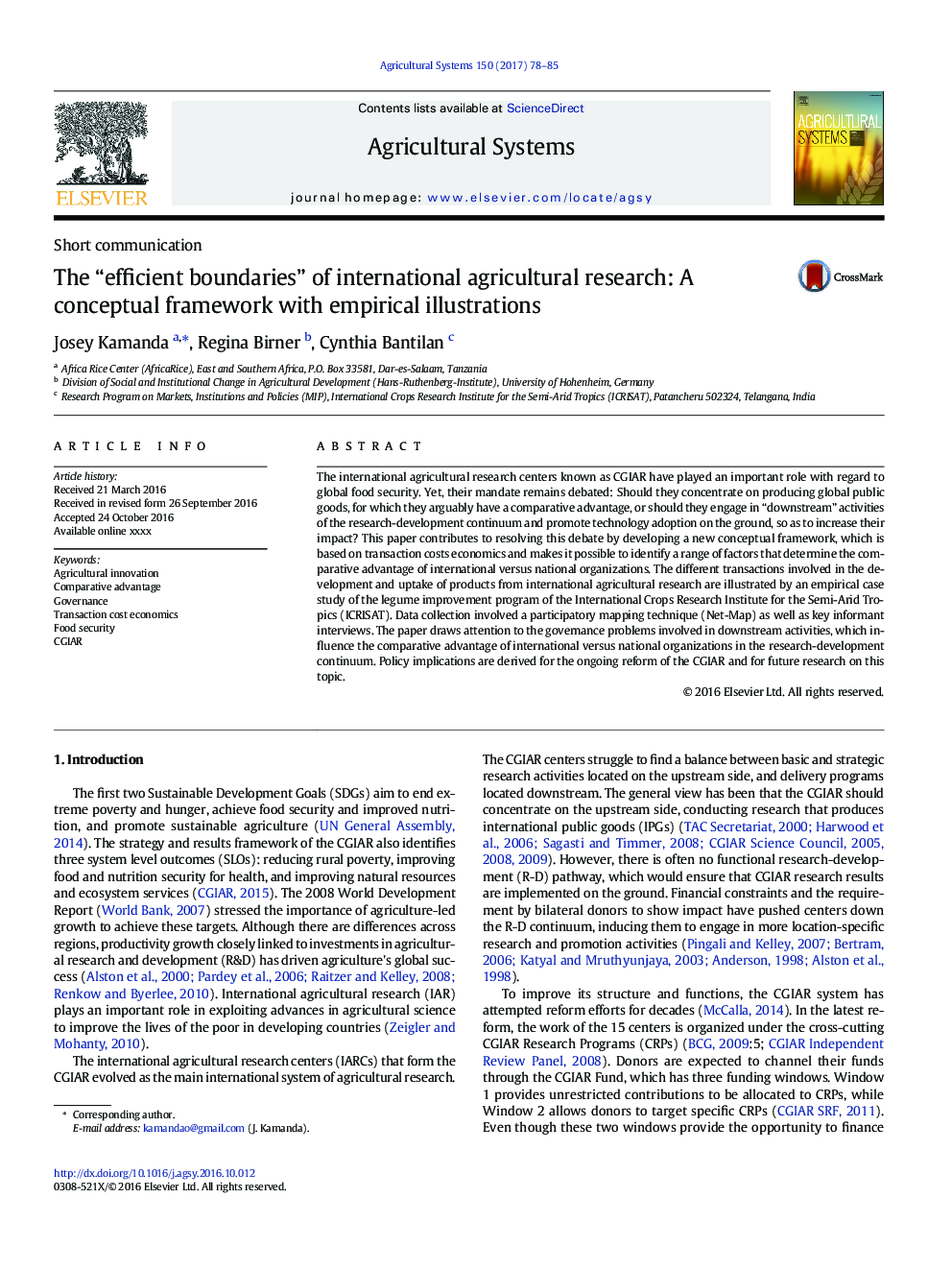| Article ID | Journal | Published Year | Pages | File Type |
|---|---|---|---|---|
| 4491108 | Agricultural Systems | 2017 | 8 Pages |
•The optimal position of IARCs in the research-development path is still contested.•Transaction costs economics can be applied to assess their comparative advantage.•Comparative advantage depends on capacity of NARES to handle governance challenges.•In the short run, assessment of national capacities should guide task allocation.•In the long run, it is cost-effective for donors to invest in capacity building.
The international agricultural research centers known as CGIAR have played an important role with regard to global food security. Yet, their mandate remains debated: Should they concentrate on producing global public goods, for which they arguably have a comparative advantage, or should they engage in “downstream” activities of the research-development continuum and promote technology adoption on the ground, so as to increase their impact? This paper contributes to resolving this debate by developing a new conceptual framework, which is based on transaction costs economics and makes it possible to identify a range of factors that determine the comparative advantage of international versus national organizations. The different transactions involved in the development and uptake of products from international agricultural research are illustrated by an empirical case study of the legume improvement program of the International Crops Research Institute for the Semi-Arid Tropics (ICRISAT). Data collection involved a participatory mapping technique (Net-Map) as well as key informant interviews. The paper draws attention to the governance problems involved in downstream activities, which influence the comparative advantage of international versus national organizations in the research-development continuum. Policy implications are derived for the ongoing reform of the CGIAR and for future research on this topic.
